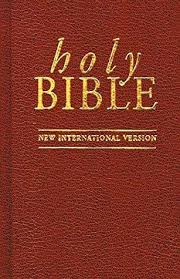Bookmark Daily Bible Reading Calendar By: Ehimwenma E. Aimiuwu – Please LIKE us on Facebook
Job 33:
Young Elihu says to Job that he was about the speak the sincerely word of God from his heart. He told Job that Job claims to have no fault or sin and wonders why God is against him. He tells Job that man is too small to question God and that man can never comprehend the ways of God, so Job’s assumption was wrong. Elihu insists that man is full of so much flaws that he needs a mediator (Jesus) to guide him from going wrong and also, man needs a redeemer (Jesus) that is a ransom and prevents us from falling into the pit. He instructed that God allows these things to bring man out of his sinful pit. Elihu is basically saying that man will always have flaws even if they are unconscious. God allows situations in our life to make us re-evaluate ourselves, get closer to God, and ultimately become better human beings. In all this, no one said that Satan did or caused anything ,but rather, it was God.
Job 34:
Elihu adds that we must know what is right and do what is good. He accused Job as a man that walked with evildoers and wicked men. So in order to remain rich, you must move with the rich. So Job may have been guilty of association by not stopping the greed and evil of the rich, despite the fact that he went behind them to help the poor. He insists that God does no evil, but only gives each man what he deserves because if God was to take back his breath, then all life would seize to exist. He asks why we favor the princes and rich over the poor, but yet judge God who owns them all. He guarantees that all the wicked will always fall and fail in a moment. He concludes that Job is talking like the wicked and godless men, and he is adding rebellion against God to the sins he has already (his company with the rich, evil, and greedy people against the comfort and progress of the poor masses).
Job 35:
Elihu continues by asking Job, if it was wise for Job to asked, if Job was better off sinning. He analyzes that what ever a man does by been good or evil does not affect God in anyway, but only our fellow man. The oppressed masses always cry out because of the pride of the evil and wicked rich people (Job’s associates) and God does not answer them, but they never accuse God. He summarizes that Job thinks he is holy and blameless, and God’s judgment against him is wrong. Elihu is basically telling Job that as a rich man who moved in the company of the rich, would have been more blameless, if he had spoken against the unjust laws against the poor masses in order to increase their wealth, rather than merely feeding the needy with his crumbs.








